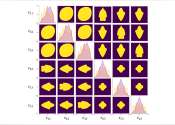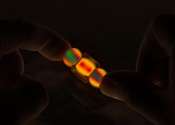Proceedings of the National Academy of Sciences
The Proceedings of the National Academy of Sciences of the United States of America, usually referred to as PNAS, is the official journal of the United States National Academy of Sciences (NAS). PNAS is an important scientific journal that printed its first issue in 1915 and continues to publish highly cited research reports, commentaries, reviews, perspectives, feature articles, profiles, letters to the editor, and actions of the Academy. Coverage in PNAS broadly spans the biological, physical, and social sciences. Although most of the papers published in the journal are in the biomedical sciences, PNAS recruits papers and publishes special features in the physical and social sciences and in mathematics. PNAS is published weekly in print, and daily online in PNAS Early Edition.
PNAS was established by NAS in 1914, with its first issue published in 1915. The NAS itself had been founded in 1863 as a private institution, but chartered by the US Congress, with the goal to "investigate, examine, experiment, and report upon any subject of science or art." By 1914, the Academy was well established.
- Publisher
- United States National Academy of Sciences
- Country
- United States
- History
- 1914 - present
- Website
- http://www.pnas.org/
- Impact factor
- 9.681 (2011)
Some content from Wikipedia,
licensed under CC BY-SA









